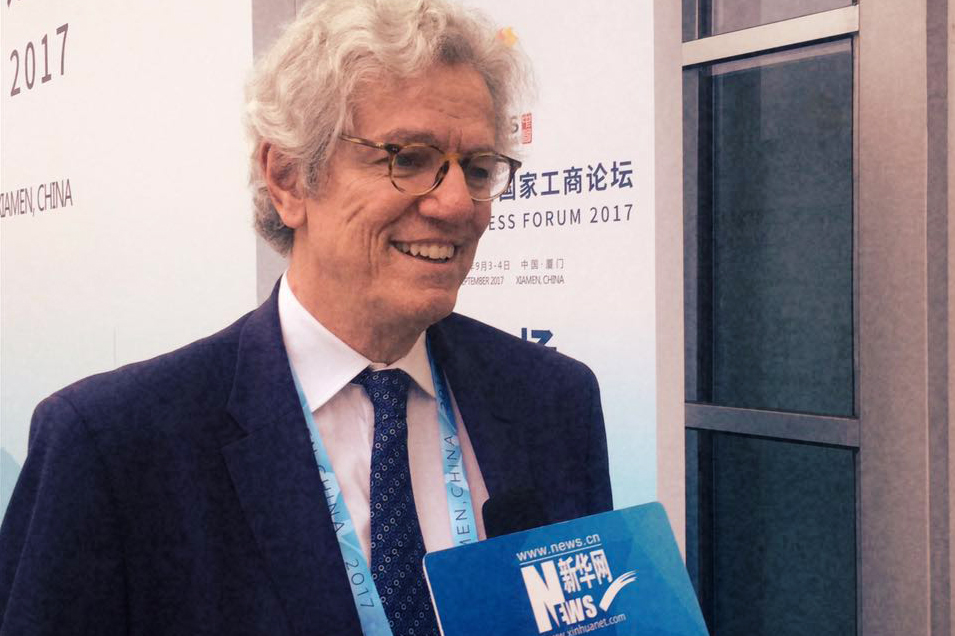Rio de Janeiro (People's Daily) – In a recent written interview with the People's Daily, Brazilian economist Paulo Nogueira Batista Jr., former vice president of the New Development Bank, highlighted the growing anticipation in the developing world regarding the BRICS nations.

Paulo Nogueira Batista Jr., then vice president of the New Development Bank(NDB), receives an interview with the Xinhuanet on the sidelines of the BRICS Business Forum in Xiamen, East China's Fujian Province, Sept. 3, 2017. (File photo: Xinhuanet)
"There is a great expectation in the developing world that BRICS will come forward to produce viable alternatives to the dollar-centered international monetary and financial system," he said, expressing his concerns about dollar hegemony and the potential future role of BRICS in reshaping the global financial landscape.
According to Batista, the BRICS began when the international financial architecture, a legacy from the 20th century, needed to give developing countries more voice and representation. A significant example was that the United States, European countries and other high-income nations controlled the International Monetary Fund (IMF) and the World Bank (WB). The Brazilian economist was also an executive director at the IMF from 2007 to 2015, during which he closely observed the organization.
Batista said the New Development Bank (NDB) and the BRICS Contingent Reserve Arrangement (CRA) were established to create financing mechanisms for BRICS, aiming to serve alternatives to the Western-dominated World Bank (WB) and the IMF. He added that further cooperation must be strengthened within BRICS, considering the dollar is still the main currency used within the NDB and BRICS.
The economist stressed that "the current dollar-centered international financial system is costly and vulnerable to unilateral actions by the US and its allies, and the West resists any attempts to reform it in a major way." Thus, he proposed three things regarding de-dollarization: promoting bilateral transactions in national currencies, building a new infrastructure for international payments and creating a new global reserve currency.
Some of the proposals have already become realities within BRICS. In 2023, China and Brazil completed a commercial deal in their local currencies for the first time.
"I believe Brazil and China can do the most to promote a just and reasonable multi-polar world by strengthening and developing our ongoing initiatives," said Batista, adding that several proposals have already been formulated for the upcoming BRICS summit.
Batista also shared his views on the roles of Brazil and China in promoting world peace. In September, China, Brazil and various Global South countries established a "Friends of Peace" platform.
"As two large middle-income developing countries that have much in common in terms of strategic interests, China and Brazil can play a mediating role in the peace negotiations to overcome the crisis in Ukraine," Batista told the People's Daily, expressing his belief that the "Friends of Peace" platform will pave the way for the cessation of hostilities.


